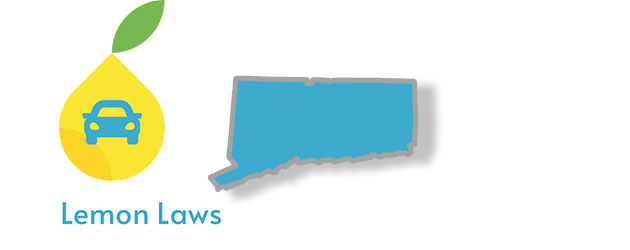
Connecticut Lemon Laws – A Summary
Connecticut’s lemon laws state that if the buyer or lessee of a vehicle finds a major fault in it – which the manufacturers are unable to fix even after 4 valid attempts by the vehicle manufacturer to repair it – the manufacturer is liable to repurchase or replace the faulty vehicle. This law applies to the vehicle throughout its express warranty period, and if the vehicle is still under its warranty period and meets the eligibility criteria as specified by Connecticut’s state laws, the owner of the vehicle can claim their lemon aid and demand the manufacturers to provide them with the necessary reimbursement, in the form of a refund or replacement of the faulty vehicle through arbitration. The repurchase costs will also cover any additional costs the owner underwent while purchasing the vehicle.
Connecticut Lemon Law Eligibility
To be eligible for arbitration, Connecticut has defined a set of criteria that the vehicle must apply to. The vehicle needs to be registered or leased as a ‘passenger’ or ‘combination’ vehicle or a ‘motorcycle’ in Connecticut itself. To be considered a ‘lemon’, the vehicle needs to have been driven for no more than 24,000 miles, or for over 2 years. The vehicle needs to have a defect that doesn’t conform to its express warranty. The defect(s) should impair the vehicle significantly, to the point where the vehicle’s market value, usability and safety are reduced, and it needs to be caused by the manufacturer and not the owner in any way.
Connecticut Lemon Law Repairs
The vehicle also needs to have undergone a number of repair attempts in order to be considered for arbitration. Standard defects require 4 failed repair attempts to be considered, but a defect that may cause any kind of bodily harm to the owner is eligible for claims with 2 or more failed attempts. Additionally, an owner can also file an arbitration claim if the vehicle has remained with the manufacturer for repair purposes for over 30 days in total.
Connecticut Lemon Law Arbitration Claim
If your vehicle fits the above criteria, you are then eligible to claim for arbitration. To do so, you need to print and fill out the form available on the DCP’s website and attach all necessary documents required, and mail it to the DCP as early as possible. To submit your application, you’ll also have to pay a fee of 450, which will be returned to you in case your claim is rejected.
The manufacturer and/or the dealer also need to be notified about your arbitration claim, and this information is usually sent via mail. If you have leased the car, you would also need to notify your leasing company regarding the matter. They may then choose to either participate during the arbitration process, or opt-out of it. The leasing company’s decision must be declared within 10 days of them receiving the notification.
After your claim has been received, the DCP will then review your claim in order to check if your vehicle is eligible for arbitration. If it is, it will be passed on to the arbiter, who will give your application a final check, and if it passes, the case will then be scheduled for a hearing. The vehicle will have a final inspection, and if the arbiter passes the judgment that it is indeed a lemon, the manufacturer will then have to provide to the owner a suitable compensation by replacing or repurchasing the vehicle.
Cases are usually resolved within 60 days by the DCP, and the arbiter’s decision remains final and binding. If unsatisfied by the arbiter’s decision, both the owner and the manufacturer have the liberty of appealing to the civil court for the case to be brought up within 30b days of the judgment being passed.
Replacement or Repurchase
On your claim being accepted, the owner will either have to replace the faulty vehicle with a new one, or repurchase the vehicle from you, compensating you with the full purchasing cost of the vehicle, as well as additional costs charged by the manufacturer. In some cases, a mileage fee will be deducted, depending on how much you have used the car prior to its defect being discovered. This should be done by the owner within 10 days of the decision being passed, and the DCP will be contacting you for confirmation if you have been reimbursed by the manufacturer after this period.
Connecticut Lemon Law Used Cars
Connecticut has a unique Lemon Law that applies to used vehicles. CONNECTICUT (CGS §§ 42-220 TO 42-226A) requires that a warranty must be provided for used vehicles sold for over $3000.
- Over $3000, but under $5000 a warranty must be provided for 30 days or 1500 miles, whichever comes first.
- Over $5000 – If the selling price is over $5000 a warranty must be provided for a period of 60 days, or 3000 miles, whichever comes first.
- If the vehicle is being repaired, the time in the shop does not count towards the warranty period.
- This warranty covers all parts and labor necessary, but does not cover any damage that may be the result of misuse, or abuse.
- If the dealer is told of a problem within the warranty period, but the warranty period expires before they see the vehicle. It still counts, and the dealer must repair the vehicle.